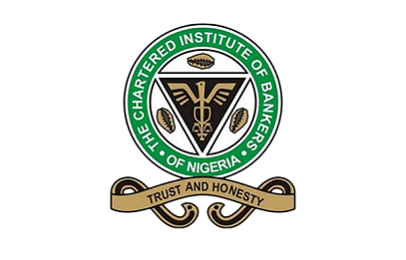In a landmark event that underscores the growing importance of professionalism and innovation in Nigeria’s financial services sector, the Chartered Institute of Bankers of Nigeria (CIBN) inducted 1,242 new members into its prestigious ranks during the 2025 Stream II induction ceremony held in Lagos over the weekend. The ceremony, themed “The Smart Banker’s Compass: Innovate, Adapt, and Solve Like a Pro,” was a vibrant celebration of excellence, perseverance, and professional growth, reflecting the institute’s commitment to shaping the future of banking in Nigeria and beyond.
A Milestone in Professional Development
The induction ceremony marked a significant milestone for the CIBN, as it welcomed a record number of new Chartered Bankers and Microfinance Certified Professionals into its fold. Professor Pius Olanrewaju, President and Chairman of the CIBN Council, commended the inductees for their discipline, commitment, and resilience in meeting the rigorous standards required to earn membership in one of Nigeria’s most respected professional bodies.
Providing a detailed breakdown of the inductees, Olanrewaju revealed that the cohort comprised professionals from various pathways: seven candidates were admitted through the Chartered Banker/MBA route, 816 via the regular route, 22 through the MSc/Chartered Banker track, and 78 under the SMP/AMP/Chartered Banker pathway. This diverse group reflects the institute’s inclusive approach to professional certification, accommodating candidates with varying academic and professional backgrounds while maintaining high standards of excellence.
The record-breaking number of inductees—1,242 in Stream II alone—brings the total number of professionals inducted by the CIBN in 2025 to 2,512, surpassing the 1,222 inducted in 2024. This achievement, announced by CIBN Registrar and Chief Executive Mr. Akin Morakinyo, highlights the institute’s growing influence and the increasing prioritization of professionalism, ethical conduct, and continuous learning within Nigeria’s financial services industry.
A Call for Innovation and Ethical Leadership
The theme of the 2025 Stream II induction ceremony, “The Smart Banker’s Compass: Innovate, Adapt, and Solve Like a Pro,” was carefully chosen to reflect the evolving demands of the global banking landscape. In his address, Professor Olanrewaju emphasized that true innovation extends beyond the adoption of digital tools and technologies. “It is a transformative mindset that must influence every aspect of banking, from product design and operational efficiency to building and sustaining stakeholder trust,” he stated.
Olanrewaju urged the new members to embody this mindset and lead by example, demonstrating professional excellence in their roles as bankers and financial professionals. He highlighted the critical role of ethical conduct in maintaining public trust in the banking sector, particularly in an era of rapid technological advancements and economic uncertainties. By adhering to the highest standards of professionalism, the inductees have the opportunity to shape the future of banking not only in Nigeria but also on the global stage.
The CIBN president also emphasized the importance of continuous learning in a rapidly changing industry. As digital transformation, regulatory changes, and customer expectations reshape the financial services landscape, bankers must remain adaptable and forward-thinking. The induction of such a large and diverse cohort, he noted, signals the industry’s commitment to equipping professionals with the skills and knowledge needed to navigate these challenges effectively.
Aligning with Nigeria’s Economic Vision
Guest speaker Dr. Jameelah Sharrieff-Ayedun, Managing Director of CreditRegistry, delivered an inspiring address, encouraging the inductees to embrace the qualities of a “smart banker.” She described a smart banker as someone who looks beyond financial metrics to serve not only their institutions but also their customers, communities, and the broader economy. “You, as finance leaders, are responsible for making President Bola Tinubu’s trillion-dollar economy vision a reality by innovating, adapting, and tackling challenges with courage,” she said.
Dr. Sharrieff-Ayedun stressed the importance of adaptability, resilience, and inclusivity in achieving this ambitious vision. She urged the inductees to develop innovative financial products and services that address the needs of underserved populations, promote financial inclusion, and drive economic growth. By aligning their efforts with national development goals, the new members can play a pivotal role in transforming Nigeria into a global economic powerhouse.
The call to align with the trillion-dollar economy vision reflects the broader role of the banking sector in Nigeria’s development. As the country seeks to diversify its economy, reduce dependence on oil, and attract foreign investment, financial professionals must lead the way in creating innovative solutions that support entrepreneurship, small businesses, and infrastructure development. The inductees, with their diverse expertise and professional training, are well-positioned to contribute to these efforts.
Recognizing Academic Excellence
The induction ceremony also served as an opportunity to honor 12 exceptional graduates for their outstanding academic performance in the CIBN’s rigorous certification programs. Among the awardees were Ezekiel Ojo, recognized as the best student in banking law and regulation; Grace Peter, who excelled in ethics, corporate governance, and professionalism; and Abdulazeez Babatunde, the top performer in lending and credit management.
Other honorees included Semiu Asifat, who was celebrated for his excellence in the evolution and regulation of microfinance; Esther Awe, the best graduating student in the microfinance certification program; and Uchechukwu Ukelere and Adeniyi Abiodun, who distinguished themselves in applied banking. These awards highlight the CIBN’s commitment to recognizing and rewarding excellence, encouraging inductees to strive for continuous improvement in their professional journeys.
The recognition of these outstanding individuals also underscores the institute’s emphasis on specialized knowledge and expertise. By excelling in areas such as banking law, ethics, and microfinance, these graduates demonstrate the depth and breadth of skills required to address the complex challenges facing Nigeria’s financial sector.
The Role of the CIBN in Shaping Nigeria’s Financial Landscape
The CIBN’s 2025 induction ceremony is a testament to the institute’s pivotal role in elevating professional standards and preparing a new generation of bankers to navigate Nigeria’s evolving financial landscape. Established as the foremost professional body for bankers in Nigeria, the CIBN has consistently championed the development of skilled, ethical, and innovative professionals who can drive the growth of the financial services sector.
The record number of inductees in 2025 reflects the growing demand for qualified professionals in Nigeria’s banking and finance industry. As the sector undergoes rapid transformation driven by digitalization, regulatory reforms, and changing consumer preferences, the need for well-trained bankers has never been greater. The CIBN’s certification programs, which combine rigorous academic training with practical experience, are designed to equip professionals with the tools they need to succeed in this dynamic environment.
The institute’s focus on microfinance certification is particularly noteworthy, given the critical role of microfinance in promoting financial inclusion and supporting small businesses in Nigeria. By training professionals in the regulation and practice of microfinance, the CIBN is contributing to the expansion of financial services to underserved communities, helping to reduce poverty and stimulate economic growth.
Challenges and Opportunities in the Banking Sector
The induction of 2,512 professionals in 2025 highlights both the opportunities and challenges facing Nigeria’s banking sector. On one hand, the influx of highly trained professionals strengthens the industry’s capacity to innovate and compete in a globalized economy. The emphasis on digital tools, ethical conduct, and inclusivity aligns with global trends and positions Nigerian bankers to meet the demands of a rapidly changing market.
However, the sector also faces significant challenges, including cybersecurity risks, regulatory compliance, and the need to expand financial access to rural and underserved areas. The inductees, as “smart bankers,” are expected to address these challenges by developing innovative solutions, building trust with stakeholders, and advocating for policies that promote financial inclusion.
The CIBN’s focus on continuous learning and adaptability is particularly relevant in this context. As new technologies such as artificial intelligence, blockchain, and fintech disrupt traditional banking models, professionals must stay ahead of the curve by acquiring new skills and embracing change. The institute’s certification programs, which emphasize both technical expertise and soft skills like problem-solving and leadership, are designed to prepare bankers for these challenges.
The Broader Implications for Nigeria’s Economy
The induction of 1,242 new members into the CIBN has far-reaching implications for Nigeria’s economy. As the country pursues its trillion-dollar economy vision, the banking sector will play a critical role in mobilizing capital, supporting entrepreneurship, and driving infrastructure development. The new inductees, with their diverse expertise and commitment to excellence, are well-equipped to contribute to these efforts.
By fostering innovation and inclusivity, the banking sector can help address some of Nigeria’s most pressing challenges, including unemployment, poverty, and economic inequality. For example, the expansion of microfinance services can empower small businesses and entrepreneurs, creating jobs and stimulating economic activity in underserved communities. Similarly, the development of innovative financial products, such as digital banking solutions, can enhance access to financial services for millions of Nigerians.
The emphasis on ethical conduct and stakeholder trust is also critical in a country where public confidence in institutions has often been undermined by corruption and mismanagement. By upholding the highest standards of professionalism, the new inductees can help rebuild trust in the banking sector, attracting investment and fostering economic stability.
Looking Ahead: A New Generation of Bankers
The 2025 Stream II induction ceremony marks a new chapter for the CIBN and Nigeria’s financial services sector. The record number of inductees, combined with the institute’s focus on innovation, adaptability, and inclusivity, signals a bright future for the industry. As these new members take on leadership roles in banks, microfinance institutions, and other financial organizations, they will have the opportunity to shape the direction of Nigeria’s economy.
The CIBN’s commitment to recognizing academic excellence and promoting continuous learning ensures that its members remain at the forefront of the industry. By equipping professionals with the skills and knowledge needed to navigate a complex and rapidly changing landscape, the institute is laying the foundation for a stronger, more resilient financial sector.
Conclusion
The induction of 1,242 new members into the Chartered Institute of Bankers of Nigeria during the 2025 Stream II ceremony is a testament to the institute’s enduring commitment to professional excellence and innovation. The event, themed “The Smart Banker’s Compass: Innovate, Adapt, and Solve Like a Pro,” celebrated the achievements of a diverse group of professionals who are poised to lead Nigeria’s financial services sector into the future.
Through its rigorous certification programs, recognition of academic excellence, and emphasis on ethical conduct, the CIBN is equipping a new generation of bankers to address the challenges and opportunities of a rapidly evolving industry. As these professionals align their efforts with Nigeria’s trillion-dollar economy vision, they have the potential to drive transformative change, promoting financial inclusion, economic growth, and national development. The record-breaking induction of 2,512 professionals in 2025 underscores the CIBN’s pivotal role in shaping a brighter future for Nigeria’s banking sector and the nation as a whole.






